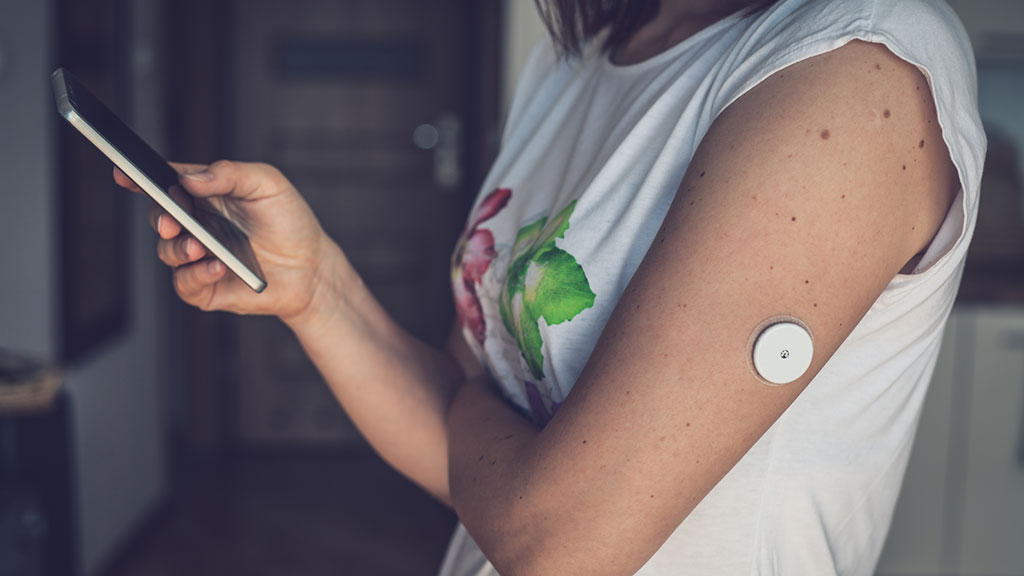
An often under looked aspect of living with a chronic condition like type 1 diabetes (T1D) is the stigma that can accompany it. Generally, diabetes stigma can be defined as negative perceptions, judgment, discrimination, or a prejudice against someone because of their diabetes. The majority of T1D stigma derives from a lack of understanding of the disease itself, and a belief that lifestyle factors such as diet or lack of exercise – or eating too much sugar ‘caused it’.
T1D is an autoimmune disease that cannot be prevented, but there remains a belief among many that simply changing habits can reverse or ‘cure’ T1D. And it can be exhausting for someone with T1D to have to repeatedly explain the mechanisms of their condition or experience undue attention on their diet, exercise habits and overall health and lifestyle.
Over the long-term, diabetes stigma and discrimination can affect T1D management and self-esteem, to the point that it may lead to hiding visible cues of their condition, such as covering up diabetes devices like advanced glucose monitors, or pumps, performing less frequent checking of blood glucose levels, or injecting insulin in private to avoid being seen as having a chronic disease. It may even cause someone to avoid seeking healthcare when needed, which could lead to potential diabetes-related complications.
Experiencing this type of stigma can have implications both internally and externally. Absorbing the negative perceptions that come from diabetes stigma can lead to feelings of shame, failure and guilt. This can impact familial relationships, the workplace, relationships with friends and mental health.
“Sometimes, being open about my T1D can be challenging because I never know what preconceptions or assumptions others may have. More than once, people have asked me, “Should you be eating that?” or “You must have been overweight before your diagnosis?” These negative experiences often create a barrier to disclosing my disease and make me hesitant to share my journey with T1D for fear of being ridiculed, ostracized or shut down. But I do my best not to internalize ignorant comments and instead try to use them to educate on what life with T1D is really like! “- Lauren (29-years-old, diagnosed age 11)
Many teens and young adults with type 1 diabetes have acknowledged experiencing diabetes stigma and that it resulted in them taking less good care of their health, according to a Research Institute of the McGill University Health Centre in Montreal study from 2019, which included 380 participants found via the social media channels of Diabetes Canada (which also supported the study), as well as diabetes clinics and organizations across the country.
During the study, (380 participants) between the ages of 14 and 24 completed an online survey that asked whether they told others they had diabetes, and whether they dealt with their diabetes care (or felt embarrassed about doing so) when with friends and other people.
Two-thirds had felt embarrassed about their diabetes and were more likely to have poor blood glucose control than the one-third who did not experience stigma. Over the previous year, this larger group was also more likely to have had either one or more events of dangerously low blood sugar that required help from another person, or an A1C level above 9% (A1C is a measure of average blood glucose levels over the last two or three months; the target for most people with diabetes is 7% or less.) The study, which was published in the Journal of Medical Internet Research, also found that feelings of stigma were slightly more common among females (68%) than males (59%).
“I found it hard at times to be open about living with T1D in work and school settings because of how many misconceptions are out there about this disease. Multiple teachers and coworkers often took an infantilizing approach after I shared my diagnosis with them, often telling me what I should and shouldn’t be eating and different ways I should be living my life according to their preconceived notions about T1D. Although these situations are hard to respond to, I try to take the opportunity to educate and not take these comments personally!” – Alicia (25-years-old, diagnosed age 7)
Unlike most chronic conditions, T1D is nearly completely self-managed. Diabetes distress, the feelings of frustration, guilt, shame and worry – (what some people with T1D experience when they’re overwhelmed by the relentlessness of diabetes) can be exacerbated by external diabetes stigma. And diabetes distress can lead to diabetes burnout, and a reluctance to manage the condition.
Diabetes stigma can particularly affect people who have diabetes and struggle with maintaining a weight that is comfortable for them. Blaming or shaming someone with diabetes, particularly by watching or commenting on what they eat, or how much activity they are doing, could lead to disordered eating or resistance to discussing changes in diet and blood glucose levels with healthcare providers.
“Although doctors are the ones who should help you the most with your T1D, they can often be the ones inflicting blame and shame if they don’t like the numbers they’re seeing at your appointments or feel that your HbA1c/time in range should be lower. I struggled with that until I found a more supportive endocrinologist and started seeing a psychotherapist living with T1D. I’ve learned that the best way to combat these feelings is to be more self-compassionate and remind myself that no matter what my blood sugars are doing, as long as I am trying my best, it’s enough!” Lauren (29-years-old, diagnosed age 11)
Although I love being open about T1D and the challenges that come along with it, it is hard to be vulnerable sometimes as there is still so much misinformation and misconceptions out there about this disease. I have had multiple people react in shock when I share that I am diabetic as they say, “but you aren’t fat!” Responses like this perpetuate the wrong idea of what T1D is supposed to look like or what a person living with T1D should look like. Although comments like this can be hard to respond to, I do my best not to internalize them and always try to take an empathetic and educational approach in my response. I truly believe most people mean well, they just aren’t always knowledgeable about the nuances of T1D.” Alicia (25-years-old, diagnosed age 7)
How people think and talk about T1D, including healthcare providers, colleagues, loved ones and friends is essential to improving health outcomes for people with the condition, and to reducing the negative perceptions and judgement surrounding it. Having good support and people willing to listen and learn is key to reducing diabetes stigma and empowering people to feel open and comfortable sharing about what it’s like to live with T1D.
Finding a community of people also living with T1D can help. JDRF Canada offers connection and support through its volunteer and community engagement program. Learn more about community resources and volunteer opportunities that connect the T1D community.
Most importantly, there is never shame in having type 1 diabetes. You may need to be prepared to educate others or correct common misconceptions. But be proud of who you are and acknowledge to yourself daily that you are doing your best, and that is all that can be asked of you.
Additional Resources:
The End Diabetes Stigma: https://enddiabetesstigma.org/
https://jdrf.ca/life-with-t1d/mental-health/free-mental-health-resources/




